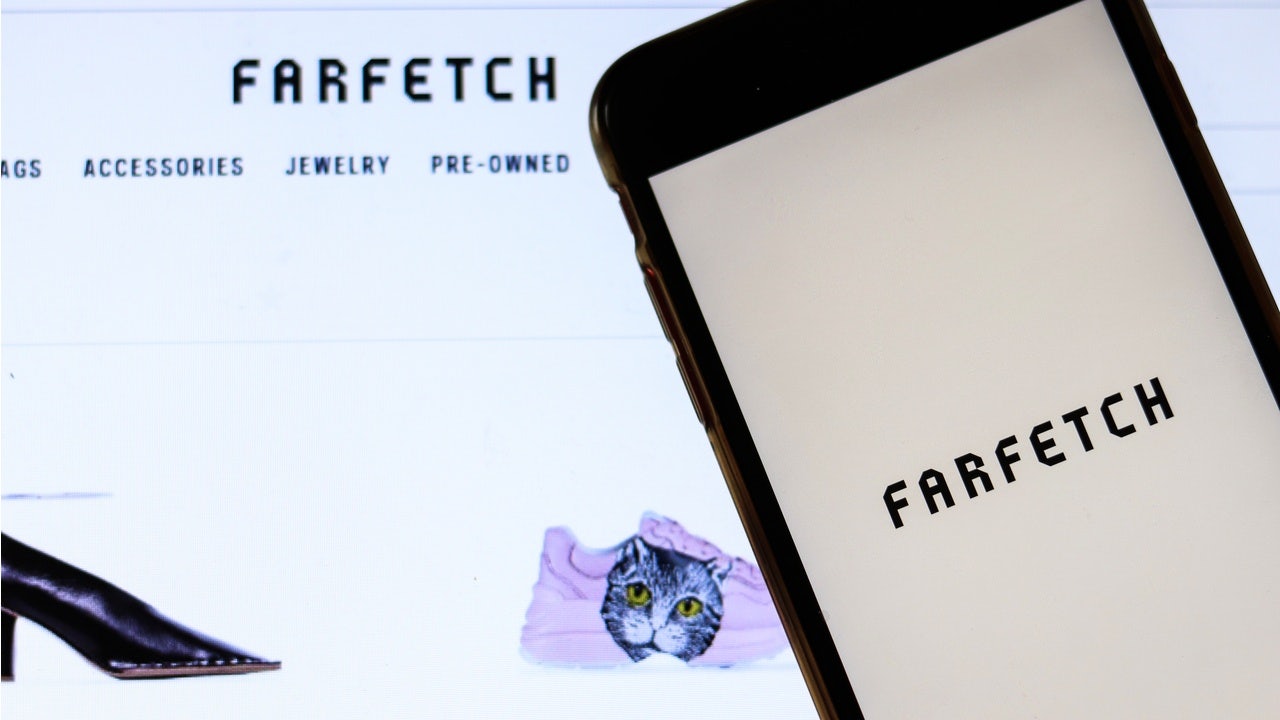One of the big winners in the luxury e-commerce market in 2020 was the London-based, NYSE-listed
Farfetch#
, which saw its fortunes turn around amid the online retail boom accelerated by the global Covid-19 pandemic. During a year when many physical stores saw their doors shuttered for extended periods, while consumers stayed glued to their smartphones and laptops, online luxury purchases rose from 39 billion in 2019 to 58 billion in 2020, with e-commerce’s share of the global luxury market nearly doubling to 23% of total sales, up from 12% the previous year.
Amid this rapid growth, Farfetch saw its market capitalization rise by a staggering 475% last year, and the company looks set to report its first-ever profit for the fourth quarter of 2020.
Following its acquisition of New Guards Group (parent company of Off-White) for 675 million in August 2019, Farfetch seemed to be in decline, with its shares falling by 40% after the purchase. But the e-commerce marketplace has steadily recovered since, and positioned itself for continued growth in the red-hot China market via a major partnership with Alibaba and Richemont announced in November 2020.
Arguably the most high-profile luxury e-commerce deal of 2020, the 1.1 billion venture between Richemont, Alibaba, Artémis, and Farfetch entails the creation of a new “Farfetch China” online marketplace and a joint 600 million investment in Farfetch by Alibaba and Richemont (amounting to a combined 25% stake in Farfetch’s Chinese operations). After announcing the deal, Alibaba rolled out plans to launch dedicated Farfetch shopping channels on its Tmall Luxury Pavilion, Luxury Soho online outlet, and cross-border marketplace Tmall Global, with Farfetch ditching its existing presence on rival JD.com. For Richemont, in addition to ensuring that the French luxury group can better tap the crucial China market, the deal was seen as a way to compete globally (and digitally) with rival LVMH, which launched its own wholesale e-commerce platform, 24S, in 2017 and invested in Lyst the following year.
But perhaps most interesting are the global implications that a closer tie-up between Farfetch and Alibaba in China could have down the line. While Farfetch clearly wants access to the ever-growing Chinese luxury e-commerce market – which Alibaba has been able to increasingly dominate in recent years via the Tmall Luxury Pavilion — it is also possible that Alibaba could see the collaboration as the first step in a longer-term process of acquiring a majority stake in Farfetch and expanding Alibaba’s global footprint, becoming, in the process, a true worldwide competitor to Amazon, which has its own luxury ambitions.
Alibaba has already made considerable inroads in the U.S. market and, despite nearly rock-bottom Sino-U.S. relations under Trump, has prioritized American expansion alongside European growth. Over the past year, Alibaba introduced new features designed specifically for U.S.-based sellers while announcing a special B2B buying and selling program for small-to-medium-sized businesses.
The company has also stepped up its efforts to attract international consumers by enlisting Western influencers to promote its AliExpress marketplace. The effort, as announced last summer, involves recruiting up to 100,000 “promoters” to work with AliExpress merchants and brands on Facebook, Instagram, YouTube, and TikTok campaigns.
At the moment, an acquisition of Farfetch by Alibaba remains — no pun intended — farfetched. But in many ways, it would be a logical combination. Alibaba would gain access to Farfetch’s global merchants and consumer base and leverage the company’s relationships with brands big and small, while Farfetch could benefit from Alibaba’s vast data capabilities and strong position in China, along with its growing footprint throughout East and Southeast Asia. That said, any such deal would likely take years to come together — Alibaba is currently in Beijing’s bad books, while regulators in the United States and Europe U.S. and European are wary of consumer data protections. And, of course, it would also likely upset Richemont, which has deepened its relationship with Alibaba in recent years.
But given a long enough timeline, one in which Alibaba and Farfetch have worked out the kinks in their partnership in China and can think more expansively, it starts to make sense. Were Farfetch and Alibaba to combine in a truly meaningful way, it could truly reshape the global luxury e-commerce ecosystem and offer the closest thing to a clear global leader in the space.
This post originally appeared on Content Commerce Insider, our sister publication on branded entertainment.


